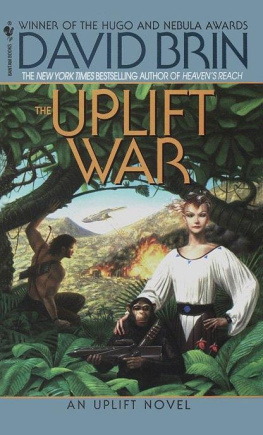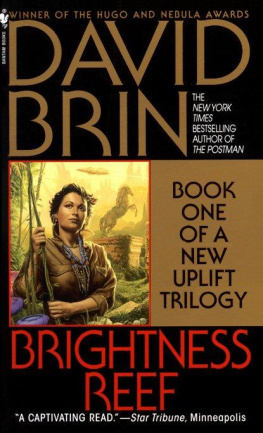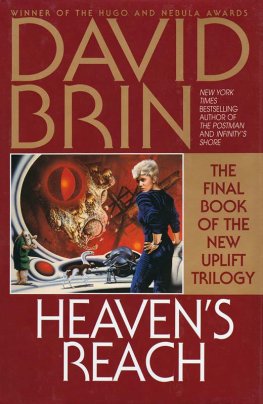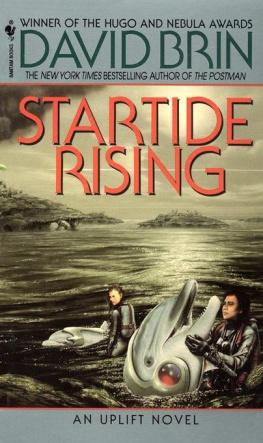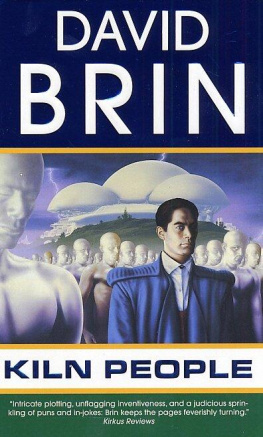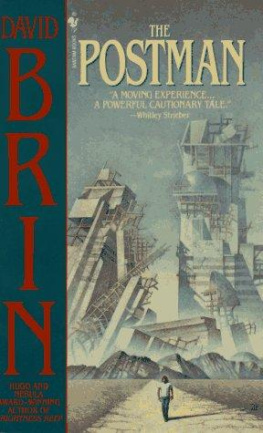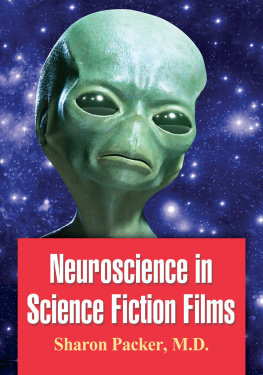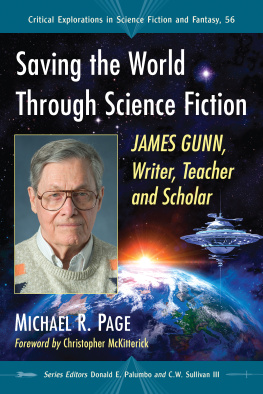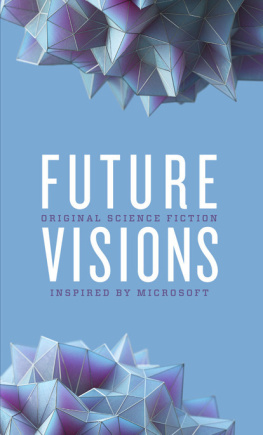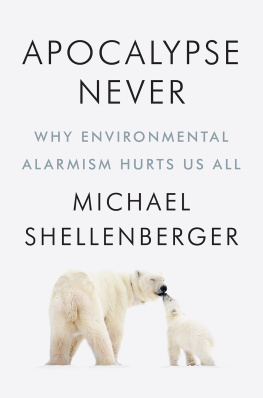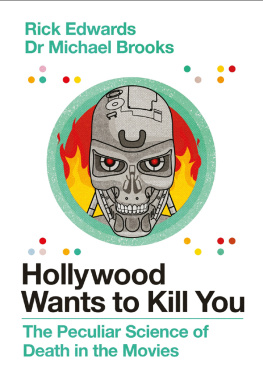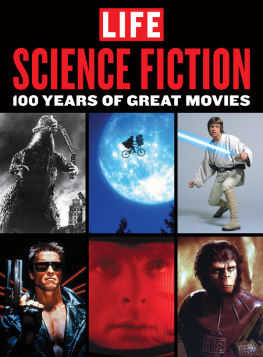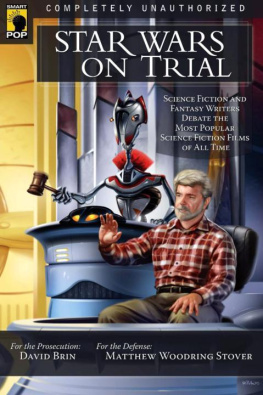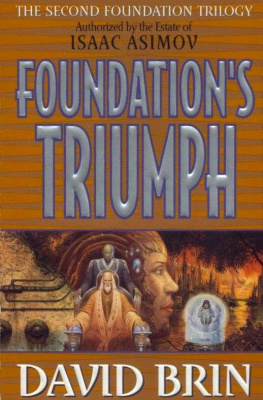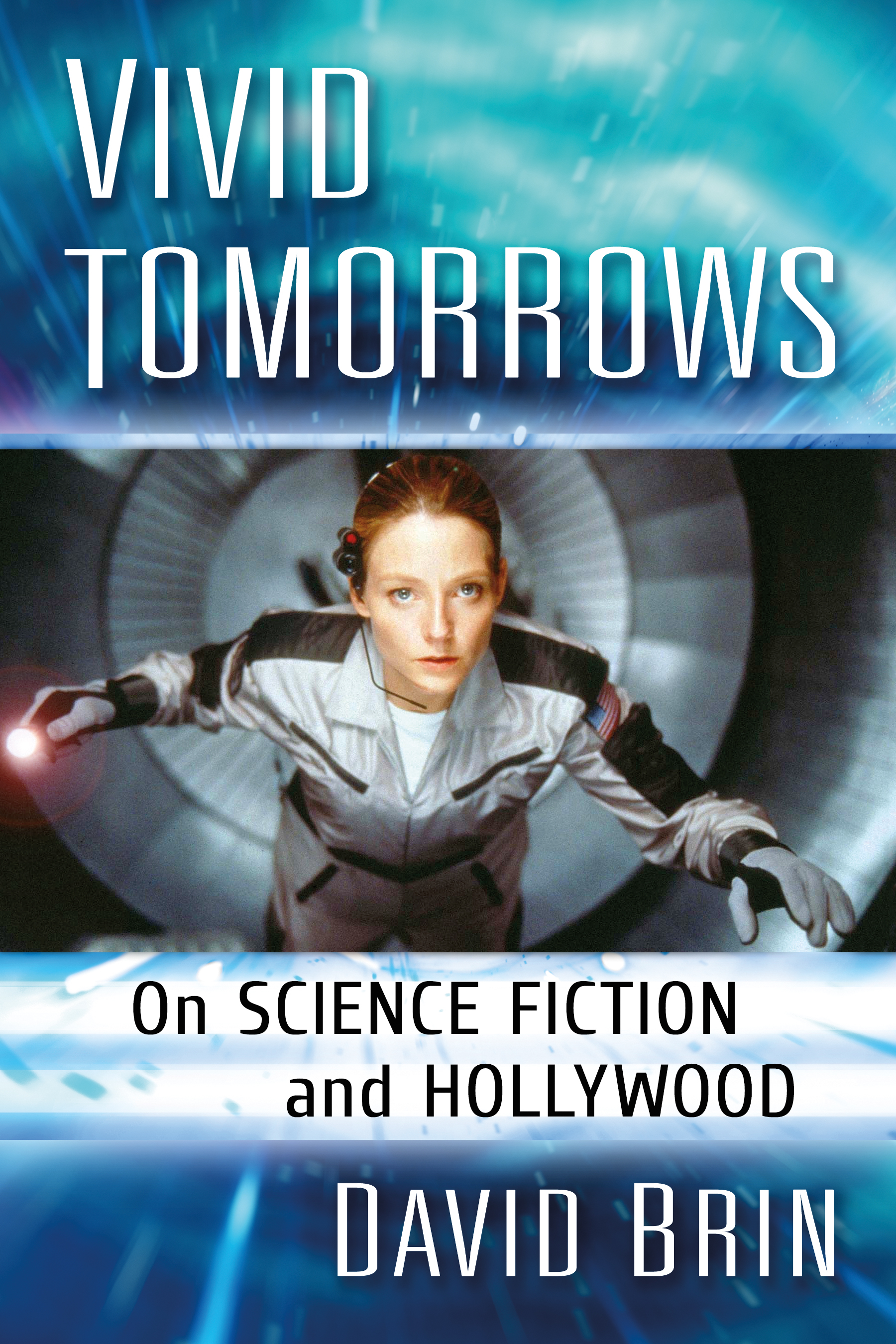The author thanks those who have critiques the many versions of these variously cogent or ranting essays, over the years. Among those who kindly lent a critical eye during formulation of the book itself were science fiction scholars Stephen Potts and Tom Easton, along with Jonathan Armstrong, Jenna Claver, Stephen Collings, Dr. Joe Miller, Edward Lerner, Dan Kimmel, Mike Gannis, Dr. Andrew Love, Kurt Stammberger, Davif Ivory, Doug McElwain, Dr Person, Dr. Charles Gannon, Prof. Tom Easton, Dr. Ed Lerner, Jonathan Alexander. Dr. Thomas Lombardo, Daniel Kimmel, Pat Scannell, Kurt Stammberger, Michael Halbrook, Bonnie Hartmeyer and several others who know who you are.
Special thanks to Robert Prior for the index. And to Cheryl Brigham for patient support.
Keep exploring.
Prologue
Science Fiction and Cinema: Saving the Future by Believing There Will Be One
Way back in 1924, Thomas Edison addressed early moguls of the film industry he helped create: I believe you control the most powerful instrument in the world for good or evil. [N]ever let a desire for money or power prevent you from giving to the public the best work of which you are capable. Edison went on to speak of a shared dream for a prosperous, useful and honorable future.
Does that sound hopelessly dreamy and nave? Surely, money-and-power are the twin screws propelling modern media. And yet, as well see, cinemaespecially science fiction cinemahas kept busy exploring, preaching, frightening, inspiring and meddling in our attitudes about tomorrow. The medium entertains, but also clarifies and criticizes, laying down stark warnings about failure modes to avoid. And it can inspireeither our better angels or the darker spirits of our nature.
All of this redoubles when science fiction screen dramas take on change , the great, salient defining characteristic of our era. Rapid, disruptive, transformative changemuch of it dangerous or disturbing, but also (to a surprising degree) change for the better.
Change is the core, essential topic of good science fiction.
Science Fiction (SF) and movies seem made for each other. From tribal folk tales to the superhero characters of Homer or the Vedas, to the surreal films of Mlis, we do seem drawn to vivid extrapolationsor exaggerationsof the life we know. There are many ways that modern Science Fiction differs from all those fantasies of the present and past, and well get into those differences. But one shared element throbs across the screen and through our minds:
We are not limited beings. Not always. Not inherently.
In the Biblical story of the Tower of Babel, it is said: If they continue thus, then nothing will be beyond them.
For well or ill, science fiction cinema takes this lesson to heart.
Nothing is beyond us, the new legends say. So choose well.
This collection of essays, published across 30 years, explores many aspects of a complex, multisided partnership: between authors and directors, studios and audiences, cinema and society, sci-fi and the future. And hence, let me beg the readers indulgence! I have tried to reconcile and reduce the number of repetitions, but you are sure to come across points that I re-statean inevitable outcome of the years that separate some of these pieces. Also because so many tropes and clichs are copied and re-multiplied in Hollywood, by producers, directors and authors who think they invented notions like Suspicion of Authority.
In Chapter 1, The Self-Preventing Prophecy: How a Dose of Nightmare Might Tame Tomorrows Perils, well look at some of the very best and most valuable dramaslike Nineteen Eighty-Four , Soylent Green, On the Beach, Dr. Strangelove, Silent Spring and Gattaca delivered to us by dour prophets who seared our souls by making us dwell (for a time) on dark destinies. Stirring millions to take action, these effective warnings show that there is no better medium for social criticism and corrective action than science fiction film and literature.
Its not too out there to suggest that contemporary science fiction writers are to the cyberspace era, what Charles Dickens, Upton Sinclair and Elizabeth Gaskell were to the Industrial Revolution, illuminating the impacts of technology on society and human nature. Their novels changed the way citizens viewed everything from child labor to tainted food and treatment of the mentally ill. Todays issues span a far wider spectrum, e.g., surveillance, the environment, tolerance, economic justice and the way that boundaries of gender start to blur when examined, plus existential threats that range from nuclear or biological war to unfriendly, or too-friendly, artificial intelligence.
If Criticism Is The Only Known Antidote To Error (CITOKATE), then good SF novels and films play vital roles in discovering mistakes in time, perhaps making it across the minefield into better days.
Alas, there are chasms of difference between an effective dire warning and the flood of hackneyed dystopias that make up a majority of sci-fi films. In Chapter 2, Society and Citizens Are Fools! The Favorite Clich of Cinema and Fiction, I dissect why your typical Hollywood apocalypse flick tends toward mindless repetition of standard villains and set-piece plotsthe sort of lazy drivel that demoralizes audiences, instead of inspiring them to act. It turns out that the source of this plague of unimaginative sameness is something banal, and completely avoidable.
On balance, which of these trends will prevail? Both of them, it seems. For while our new myths (sometimes) stir us to do much better, they also make nearly all of us strangely reluctant to admit that any progress has happened. Hence the theme of our third essay, 2001: A Space Odyssey : Shining Light on How Far Weve Come, in which I share the disappointment expressed by so many future-fans at the turn of the century that we arent further along in our exploration of space. Only then I also show that there are compensations. A contrast best displayed in film.
After those three sober contemplations of serious matters, well finish Part I with some fun: my quirky best-of list, proposing a few dozen great (and near-miss) sci-fi films for your consideration. The capsule reviews in this piece (one of the most popular I ever posted online) are brief. Still, they may make you go Huh! and maybe even appreciate better the vast range of brilliant creativity in this strange genre of entertainment.
Part II will dive into some wildly popular and lucrative franchises of Science Fictional film. Well explore dark underpinnings of the superficially ebullient Star Wars movies, especially why their early promise devolved into something both dismal and betraying. My infamous denunciation of George Lucas downward storytelling spiralpublished in Salon magazinestirred so much controversy that it led to a fun book, Star Wars on Trial , in which two dozen strong-willed authors thrashed out every complaint against and every defense of this popular, influential epic.


